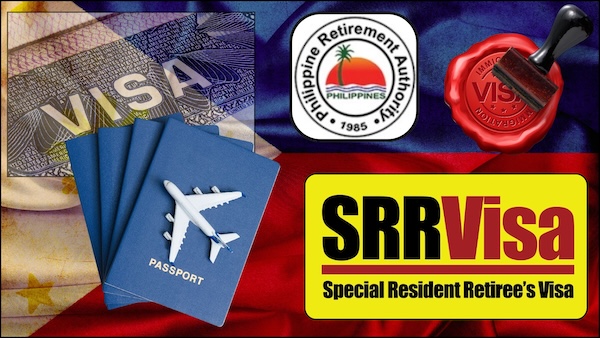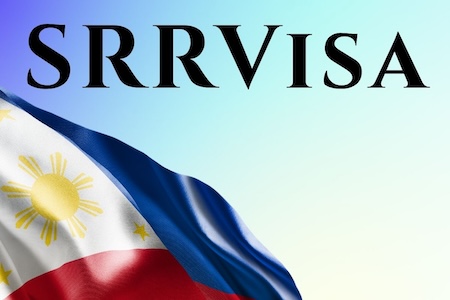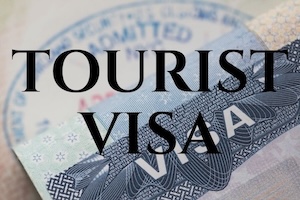
Philippine Visa Options for Expats and Retirees | 2025 Guide
If you're planning to live in the Philippines — short term or long term — you'll need to understand the country’s visa options. This introduction outlines the main types of visas available and links to our detailed, real-world guides. Whether you're just visiting, considering retirement, or exploring work or investment opportunities, there’s a visa path that fits.
Once you have a broad understanding of the visa pathways, covered on this page, it is then time to look more closely at the one that fits your situation. The three articles below each focus on a specific area — Tourist Visas, the SRRV for retirees, and a broader Visa Pathways guide that includes work, investment, and family-based options.

Explore the SRRV, a long-term visa designed for retirees seeking permanent residency and flexible entry to the Philippines.

Understand visa lengths, extensions, and key rules for long-stay visitors to the Philippines.

Discover practical visa routes for expats, retirees, and long-stay visitors planning life in the Philippines.

How Do You Choose the Right Visa?
Start by asking what kind of life you're building in the Philippines. Are you an expat exploring the islands for the first time? Planning to retire permanently? Looking to work, invest, or settle down with a partner? Each visa path has different rules, costs, and long-term advantages — and understanding the right one for your situation can save time and stress later on.
The table below provides an overview of different visa pathways available in the Philippines, offering a simple look at who each one suits, how long they allow you to stay, and how much effort is involved.
| Visa Type | Best For | Stay Length | Upfront Effort |
|---|---|---|---|
| Tourist Visa | Short-term stays, remote workers, new arrivals | Up to 36 months (with regular extensions) | Low |
| SRRV | Retirees, permanent relocation, long-term expats | Indefinite (lifetime visa) | Medium–High |
| 13(a) Immigrant Visa | Foreigners married to a Filipino citizen | Permanent (with annual immigration reporting) | Medium |
| Other Visa Routes | Employment, investment, study, special entry programs | Variable (from 6 months to multiple years) | Medium–High |

Common Visa Options
Here’s a summary of the most commonly used visa routes for visiting or staying in the Philippines. Each serves a different purpose depending on your plans — from short-term travel to long-term settlement — and we cover them in full detail in our dedicated guides.

SRRV: Special Resident Retiree’s Visa
The SRRV is designed for foreign retirees who want to live in the Philippines long-term. It offers a lifetime visa with multiple-entry privileges, exemption from most immigration paperwork, and access to benefits like PhilHealth. While the process requires a deposit and supporting documents, it's one of the most secure options for retiring in the country.

Tourist Visa
The Tourist Visa is the most flexible way to enter and stay in the Philippines. Many nationalities can arrive visa-free and extend their stay for up to 36 months. It’s ideal for those who want to explore the country before committing to long-term plans, but comes with rules around overstays, reporting, and income restrictions.

13(a) Non-Quota Immigrant Visa
The 13(a) visa is available to foreign nationals married to Filipino citizens. It offers permanent residency without the need for a large deposit or retirement income. While it involves paperwork and annual reporting, it’s a stable and practical path for expats with a local spouse who plan to settle long-term in the Philippines.

Conclusion – Making the Right Move
Choosing the right visa is more than a formality — it’s about aligning your goals with the realities of living, retiring, or spending extended time in the Philippines. Each pathway has its own advantages, requirements, and trade-offs, but understanding them is the first step toward a smoother experience.
This page gives you a clear starting point. From here, the focused guides on Tourist Visas, the SRRV, and broader visa pathways will help you navigate the details and make informed, confident decisions.

Next Steps
Looking beyond visas? Once you've got your entry route sorted, it’s time to explore what life in the Philippines is really like. Go to our featured guides or explore our In Focus articles:
Overseas Money Transfer Private Healthcare Get in Focus → Key Articles Back to Retirement HubBack to Top
